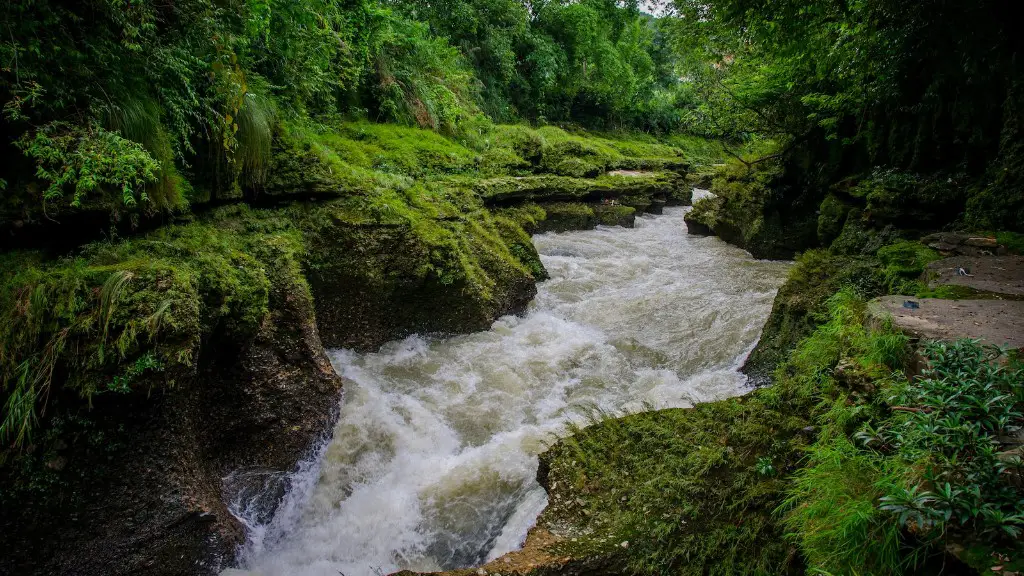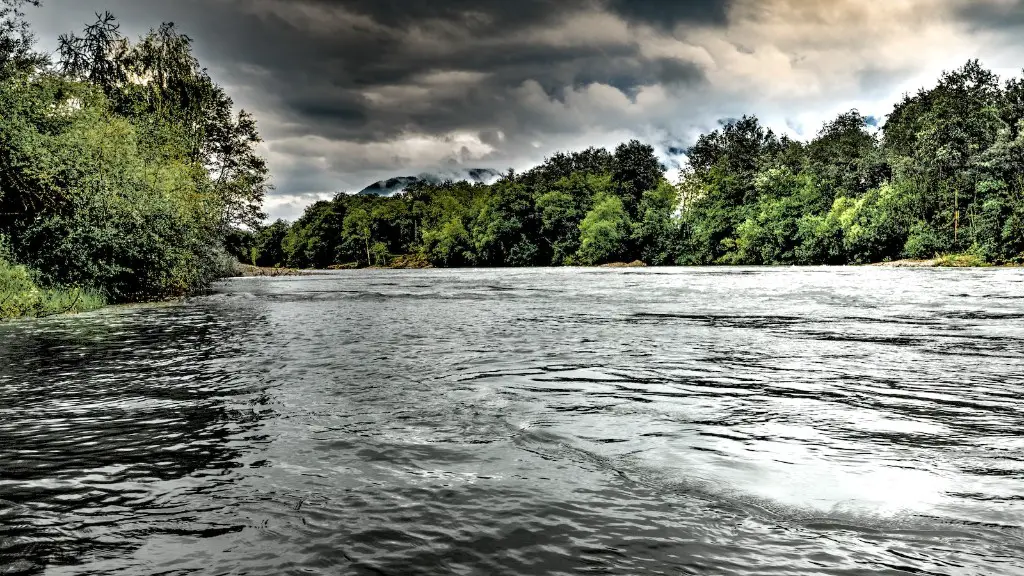What is the Forecast for the Mississippi River Basin?
The Mississippi River basin is one of the largest river systems in North America and is home to a complex network of biotic and abiotic variables which can be affected by climate change, human development and man-made activities.
Climate change is expected to bring warmer temperatures, reduced snowpack and unfavorable meteorological conditions across the Mississippi River basin in the coming years. These changes could negatively impact the ecology of the basin, reduce water availability, and increase the severity of flooding events. It may also put the basin at a higher risk of invasive species, nutrient loading, and groundwater contamination.
Experts predict that droughts and floods will become more frequent and intense by 2050, due to the combined effects of climate change, urban expansion, and population growth. Furthermore, increased rainfall and temperature variability are expected to have a direct impact on biogeochemical processes and aquatic species in the basin.
The Mississippi River basin is already facing severe environmental problems, such as the loss of valuable wetlands, the collapse of fish populations, and the declining water quality. However, some of these environmental issues may become more severe in the future due to climate change. For example, rising temperatures and decreased snowpack may exacerbate drought conditions, which could lead to reduced water availability for irrigation and drinking water use.
In addition, climate change may increase the severity and frequency of floods, as more rain and snowmelt than usual falls in the basin. The U.S. Geological Survey (USGS) has predicted that the severity and frequency of floods could triple by the year 2030, potentially causing billions of dollars in damages to infrastructure and businesses in the basin.
Climate change adaptation and mitigation efforts are necessary in order to reduce the impacts of climate change on the Mississippi River basin. One example is the Conservation Reserve Enhancement Program (CREP), funded by the U.S. Department of Agriculture, which provides farmers with financial incentives to practice conservation. This program has been successful in reducing nutrient runoff and improving water quality in the basin.
Although climate change cannot be stopped, it is possible to adapt to its impacts by implementing innovative strategies and technologies. Some of these include drought and flood management, improved irrigation systems, and better water conservation practices. Other strategies, such as bio-remediation and improved land-use management, may help to protect the environment and preserve the ecosystem of the Mississippi River basin.
Impact on the Economy
The Mississippi River basin has a significant economic impact on the region, supporting industries such as agriculture, energy, and transportation. Any changes in climate or hydrology could have an adverse effect on these industries, potentially leading to economic hardship.
The USGS has estimated that the cumulative economic impact of climate change related events on the basin could exceed $340 billion dollars over the next 80 years. Drought is likely to be one of the most costly environmental stressors, decreasing crop yields and damaging infrastructure. On the other hand, extreme flooding events could also be devastating, destroying homes and businesses, and disrupting transportation and supply chains.
In order to protect the economy of the Mississippi River basin from the impacts of climate change, a comprehensive plan for adaptation and mitigation is needed. This plan should incorporate resilience strategies, such as improved early warning systems, improved infrastructural integrity, and improved land-use zoning. In addition, effective policies and incentives should be implemented to encourage the adoption of climate smart agriculture and water conservation.
The Role of Humans
Humans are largely responsible for the current state of the Mississippi River basin. Rapid population growth, unregulated development, and increased pollution have contributed to the degradation of the basin’s environment, which is now feeling the effects of climate change.
In order to preserve the basin, humans must take collective action. This includes reducing pollution, minimizing land-use disruption, and implementing sustainable development practices. In addition, individuals living in the basin need to become more aware of the potential impacts of climate change on the environment, and take steps to reduce their own carbon footprints.
Governments can also play an important role by enacting policies and incentives that encourage sustainable practices. This could include financial incentives for green technologies and renewable energy sources, regulations to reduce water pollution, and support for environmental protection initiatives. Furthermore, public education and involvement can help to promote climate action and ensure greater resilience to the effects of a changing climate.
Adaptation and Mitigation Strategies
Climate change adaptation and mitigation strategies are necessary in order to reduce the impacts of climate change on the Mississippi River basin. One example of an adaptation strategy is the implementation of better flood control systems, which can help to mitigate or prevent flooding events. In addition, water conservation practices, such as rainwater harvesting and reducing water waste, can help to reduce water scarcity in the basin.
Mitigation strategies can also be effective in reducing the impacts of climate change.For example, switching to renewable energy sources like solar and wind power can reduce greenhouse gas emissions, while investing in green infrastructure can help to protect against floods and droughts. In addition, reforestation, land-use zoning, and better agricultural management can all help to preserve the environment and improve water quality in the basin.
It is important for governments, businesses, and individuals to work together to develop climate change adaptation and mitigation strategies. Effective collaboration, planning, and implementation of these strategies can help to ensure a future for the Mississippi River basin that is resilient to the impacts of a changing climate.
Climate Change Related Diseases
Climate change has been linked to a number of human health issues, such as the spread of infectious diseases, heat-related illnesses, and air quality issues. In the Mississippi River basin, vector-borne diseases like malaria and dengue fever are expected to become more common due to warmer temperatures and increased precipitation. In addition, increased flooding is likely to increase the risk of water-borne illnesses and contamination of drinking water supplies.
It is essential to prepare for these health issues in order to protect the population of the Mississippi River basin. This could involve raising public awareness of climate-related health risks and implementing preventive measures, such as early disease detection and vector control. In addition, it is important to invest in public health infrastructure and programs to ensure that people have access to necessary treatments and resources.
Conclusion
Climate change is already having an impact on the Mississippi River basin, and these impacts are expected to become more severe in the future. The effects of climate change could include reduced water availability, increased flooding, and a higher risk of disease. In order to protect the environment and the people of the basin, it is essential to invest in climate adaptation and mitigation strategies. This could involve implementing better flood control systems, switching to renewable energy sources, and practicing water conservation. Furthermore, governments, businesses, and individuals must work together to ensure that the basin remains resilient to the impacts of a changing climate.




